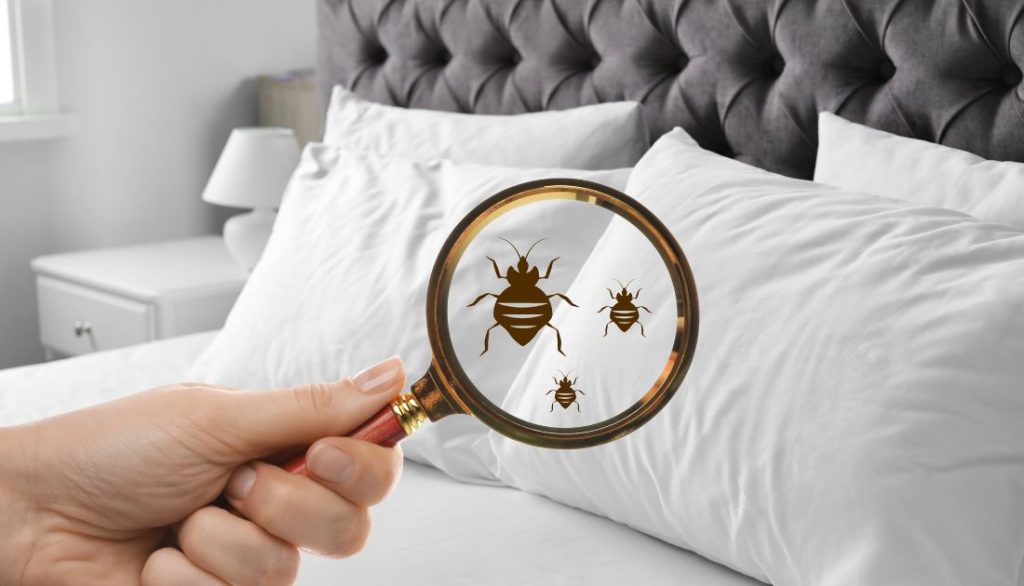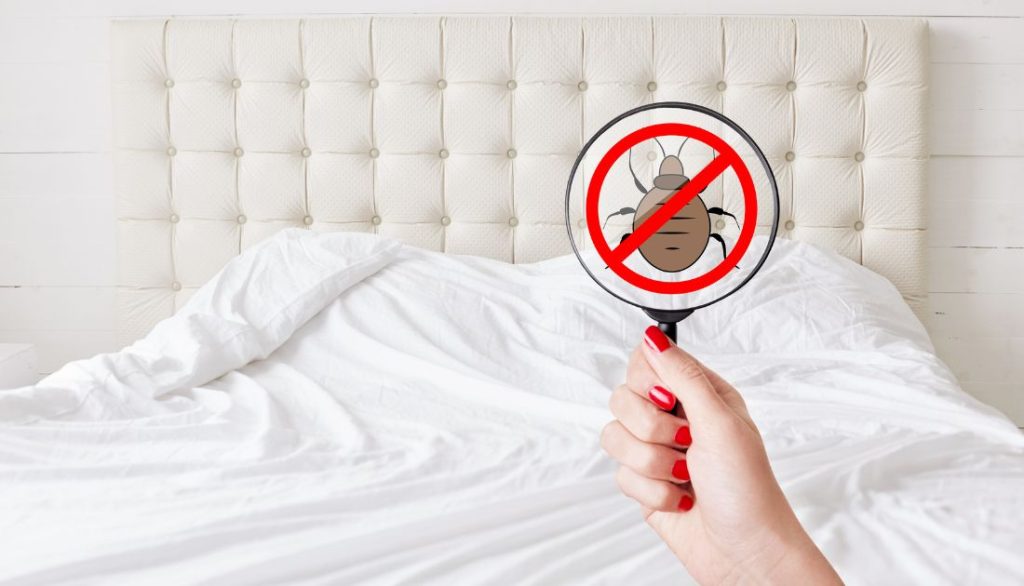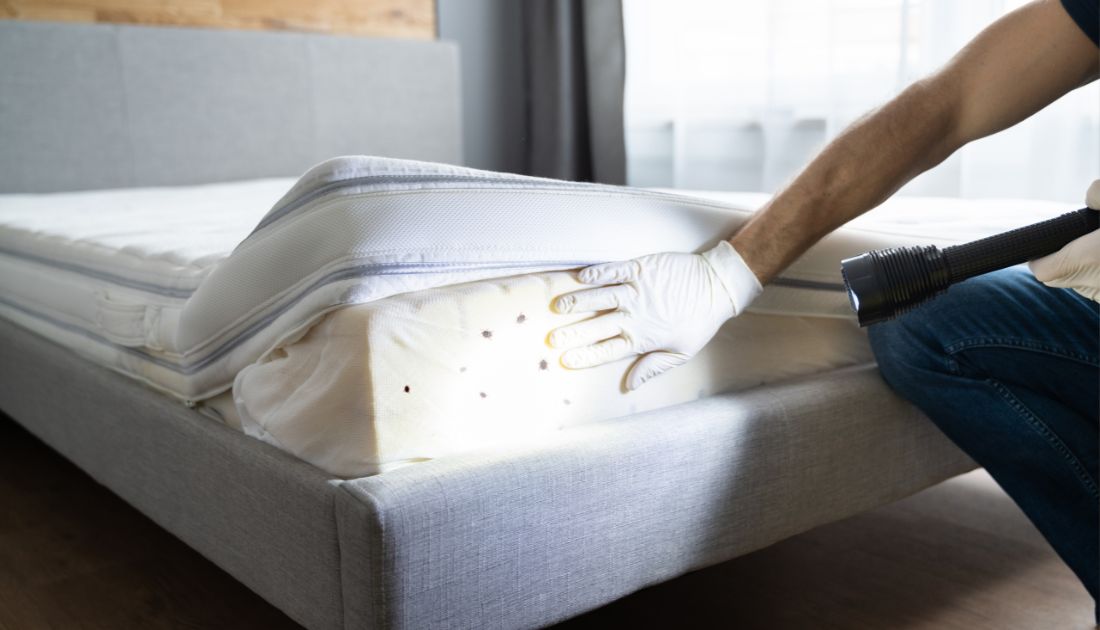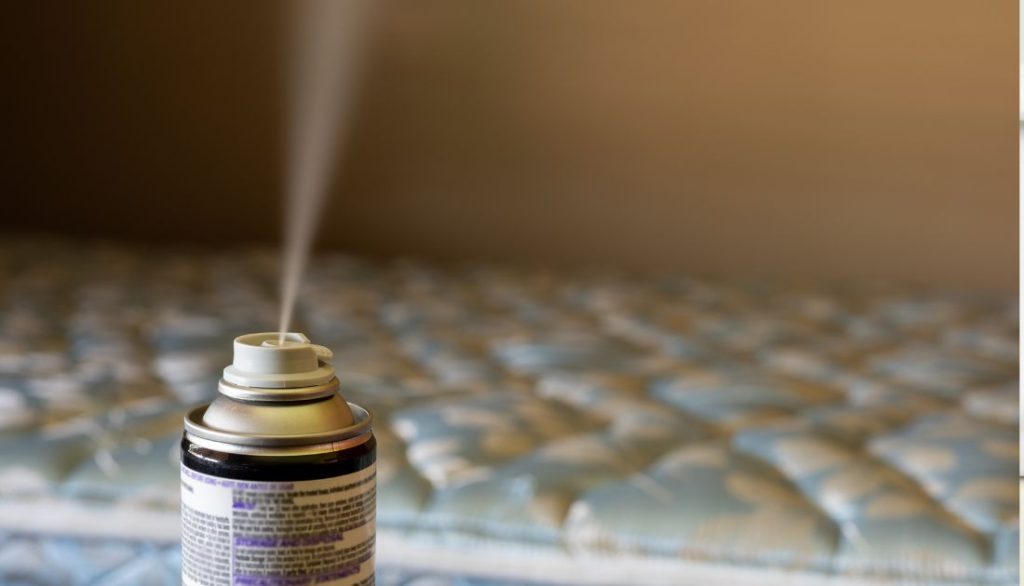Table of Contents
In recent years, the prevalence of bed bugs has become a growing concern for many homeowners and property managers. These pesky pests can be difficult to eliminate once they infest a space, leading individuals to seek alternative solutions to traditional chemical treatments. Essential oils like natural plant-based extracts have been used for centuries for their therapeutic properties.
With their proven efficacy and environmentally friendly nature, essential oils are becoming an increasingly popular choice for those looking to combat bed bug infestations without harsh chemicals.
Understanding Bed Bugs: A Brief Overview
Bed bugs are tiny, reddish-brown insects that feed on the blood of humans and animals while they sleep. They are commonly found in areas where people rest or sleep for extended periods, such as beds, couches, and chairs. Unlike other pests, bed bugs do not transmit diseases; their bites can cause itching and discomfort.
Here are some key points to know about bed bugs:
- They are resilient creatures that can survive without feeding for several months.
- Bed bug infestations can occur in clean environments.
- Early detection is crucial in controlling a bed bug problem.
By understanding these basic facts about bed bugs, you can take proactive steps to prevent infestations effectively using natural remedies like essential oils.
The Science Behind Essential Oils: How They Work
Essential oils are volatile compounds extracted from plants through distillation or cold pressing. These oils contain the plant’s natural aroma and beneficial properties.
When essential oils are inhaled or applied to the skin, their molecules interact with receptors in our olfactory system or are absorbed into the bloodstream, triggering various physiological responses.
Certain essential oils, such as lavender, peppermint, and tea tree oil, have been found to possess insect-repelling properties that can deter bed bugs naturally.

Top Essential Oils for Repelling Bed Bugs
Lavender Oil: Known for its pleasant scent, it is a powerful natural repellent against bed bugs. The strong fragrance of this essential oil can help deter these pests from infesting your home.
Tea Tree Oil: With its antimicrobial properties, tea tree oil repels bed bugs and helps eliminate bacteria and fungi that may attract them to your living space.
Peppermint Oil: The refreshing aroma of peppermint oil can deter bed bugs, making it an effective option for keeping these unwanted guests at bay.
Thymol: Thymol, a natural compound found in thyme oil, is effective in repelling bed bugs. Its strong antiseptic properties disrupt the pests’ nervous systems, deterring them from infested areas. Thymol’s potent scent masks human odors, making it a reliable and eco-friendly bed bug repellent.
Geraniol: Geraniol, derived from geranium oil, is a potent bed bug repellent. Its strong floral scent overwhelms and deters bed bugs, disrupting their ability to locate hosts. Geraniol’s natural, non-toxic properties make it a safe option in homes and around sleeping areas.
Citronella: Citronella oil, famous for its insect-repelling properties, also works against bed bugs. The oil’s strong citrus aroma confuses and repels bed bugs, preventing them from identifying human hosts. Citronella is a natural, environmentally friendly alternative to chemical repellents for bed bug control.
Eugenol: Eugenol, an active ingredient in clove oil, effectively repels bed bugs. Its strong, spicy scent disrupts the insects’ sensory receptors, making locating hosts difficult. Eugenol’s natural insecticidal properties also reduce bed bug populations, making it a dual-action solution.
Carvacrol: Carvacrol, found in oregano oil, is a powerful bed bug deterrent. Its potent, aromatic scent interferes with the pests’ sensory mechanisms, repelling them effectively. Carvacrol’s natural composition makes it a safe and non-toxic alternative for managing bed bug infestations in residential areas.
Rubbing Alcohol: Rubbing alcohol is a common, effective bed bug repellent. Its strong odor and dehydrating properties disrupt bed bugs’ exoskeletons, deterring and killing them upon contact. Rubbing alcohol is a readily available and inexpensive option for immediate, short-term bed bug control.
Blood Orange Oil: Blood orange oil, with its vibrant citrus scent, is a natural bed bug repellent. The oil’s strong aroma confuses bed bugs and masks human odors, preventing bites. Blood orange oil is a pleasant-smelling, non-toxic alternative for those seeking natural bed bug deterrents.
Diatomaceous Earth: Diatomaceous earth is a natural, non-toxic bed bug repellent and killer. Composed of fossilized algae, it dehydrates bed bugs by damaging their exoskeletons upon contact. This fine powder is safe for humans and pets, making it an effective and eco-friendly solution for bed bug infestations.
Powdered Pepper: Powdered pepper, especially black pepper, can repel bed bugs due to its pungent smell. The strong aroma and potential irritation deter bed bugs from infested areas. This natural repellent offers a non-toxic, readily available option to prevent bed bug bites and infestations.
Lemon: Lemon essential oil is reputed for its insect-repelling properties. Its strong citrus scent is offensive to bed bugs, making it an effective natural deterrent. Additionally, lemon oil has antimicrobial properties, contributing to a cleaner, fresher environment while helping to prevent bed bug infestations in treated areas.

Cinnamon: Cinnamon essential oil is known for its potent insecticidal properties. Cinnamon oil’s strong, spicy aroma can repel bed bugs, disrupting their ability to locate hosts. Its active compound, cinnamaldehyde, is particularly effective at keeping these pests at bay, making it a valuable tool in natural pest control.
Neem Oil: Neem oil is a powerful natural insect repellent, including for bed bugs. Its active compounds, such as azadirachtin, interfere with the reproductive cycle of bed bugs, reducing their population over time. Neem oil also has antifungal and antibacterial properties, adding extra benefits to its pest-repelling capabilities.
Peppermint Oil: Peppermint oil is widely recognized for its insect-repellent properties. Its strong menthol aroma can deter bed bugs, making it an effective natural solution. Besides repelling bed bugs, peppermint oil has antimicrobial properties, which can help maintain a clean and healthy environment.
Eucalyptus Oil: Eucalyptus oil is a potent natural insect repellent for bed bugs. Its strong, fresh scent is unpleasant to bed bugs, deterring them from infesting treated areas. Eucalyptus oil’s primary compound, cineole, also has antiseptic properties, providing additional benefits beyond pest control.
Lemongrass Oil: Lemongrass oil effectively repels bed bugs due to its strong citrus scent and active compound, citral. This essential oil disrupts the bed bugs’ sensory reception, making locating their hosts difficult. Additionally, lemongrass oil has antimicrobial properties, promoting a cleaner environment.
Clove Oil: Clove oil is highly effective in repelling bed bugs thanks to its strong, spicy aroma and eugenol, a potent insecticidal compound. This essential oil disrupts the bed bugs’ nervous system, deterring them from infesting treated areas. Clove oil also offers antibacterial properties, enhancing its utility.
Thyme Oil: Thyme oil is known for its insect-repelling properties, particularly against bed bugs. Its strong, herbaceous scent, along with its active compound thymol, effectively deters bed bugs. Additionally, thyme oil has antimicrobial properties, contributing to a healthier living environment by preventing infestations.
Cinnamon Oil: Cinnamon oil, with its strong, spicy aroma, is an effective natural repellent for bed bugs. The active compound cinnamaldehyde disrupts bed bugs’ ability to locate hosts, making it difficult for them to infest treated areas. Cinnamon oil’s antimicrobial properties also help maintain a clean environment.
Incorporating these essential oils into your cleaning routine or DIY bug-repellent sprays can provide a natural solution to ward off pesky bed bugs without harsh chemicals.
Methods of Application: How to Use Essential Oils Safely
- Dilution: Always dilute essential oils with a carrier oil before applying them directly onto the skin. The typical ratio is 1-2 drops of essential oil per teaspoon of carrier oil.
- Topical Application: Apply diluted essential oils on your skin by massaging or lightly dabbing the mixture onto affected areas. Avoid sensitive areas like eyes, nose, and mucous membranes.
- Diffusion: Use an aromatherapy diffuser to disperse essential oils into the air. This method can help repel bed bugs while creating a pleasant aroma in your living space.
Before widespread application, remember to conduct a patch test on a small skin area. If irritation occurs, discontinue use immediately.
Creating Your Own Essential Oil Bed Bug Repellent Spray
You will need a few key ingredients to make your essential oil bed bug-repellent spray.
Start by choosing essential oils known for their insect-repelling properties, such as lavender, tea tree, eucalyptus, or peppermint.
Next, gather other items like water and a small spray bottle for mixing and storing your DIY repellent.
Instructions:
- Fill the spray bottle with water.
- Add 10-15 drops of your chosen essential oil.
- Shake well before use and spritz around your bed frame and other areas where bed bugs may hide.
- This natural solution is safe for you and the environment, keeping those pesky bugs at bay without harsh chemicals.
Additional Tips for Preventing Bed Bug Infestations
- Regular vacuuming and cleaning can help prevent bed bugs from infesting your home. Pay special attention to crevices, cracks, and other hiding spots where bed bugs may lurk.
- Inspect second-hand furniture: Before bringing any used furniture into your home, thoroughly inspect it for signs of bed bugs. This precaution can help prevent an infestation before it starts.
- Monitor your surroundings: Stay vigilant and look for any signs of bed bugs, such as bites on your skin or small blood stains on sheets. Early detection can make a significant difference in preventing a full-blown infestation.
Using Essential Oils in Combination with Other Natural Remedies
When dealing with a bed bug infestation, using essential oils in combination with other natural remedies can enhance the effectiveness of your treatment. For instance, diatomaceous earth is a powdery substance that can be sprinkled around potential bed bug hiding spots to kill them upon contact.
Additionally, incorporating lavender-scented sachets or dried lavender flowers in strategic areas can deter bed bugs due to their strong fragrance. Another effective natural remedy is steam cleaning, which not only kills bed bugs on contact but also sanitizes the area without the use of harsh chemicals.
Incorporating these natural remedies and essential oils like peppermint and tea tree oil can create a potent mix that repels bed bugs and helps eliminate them from your living space without exposing you to harmful pesticides.
Conclusion
Essential oils offer a potent and natural solution to repel bed bugs without resorting to harsh chemicals. Their efficacy in deterring these pesky pests has been well-documented through various studies and anecdotal evidence. Homeowners can effectively safeguard their living spaces from bed bug infestations by harnessing the power of essential oils such as lavender, peppermint, and tea trees.
It is important to note that while essential oils are a safe and eco-friendly option for bed bug control, consistency is key to maintaining their effectiveness. Regularly applying these oils in strategic areas can create an inhospitable environment for bed bugs, ultimately preventing them from invading your home.

